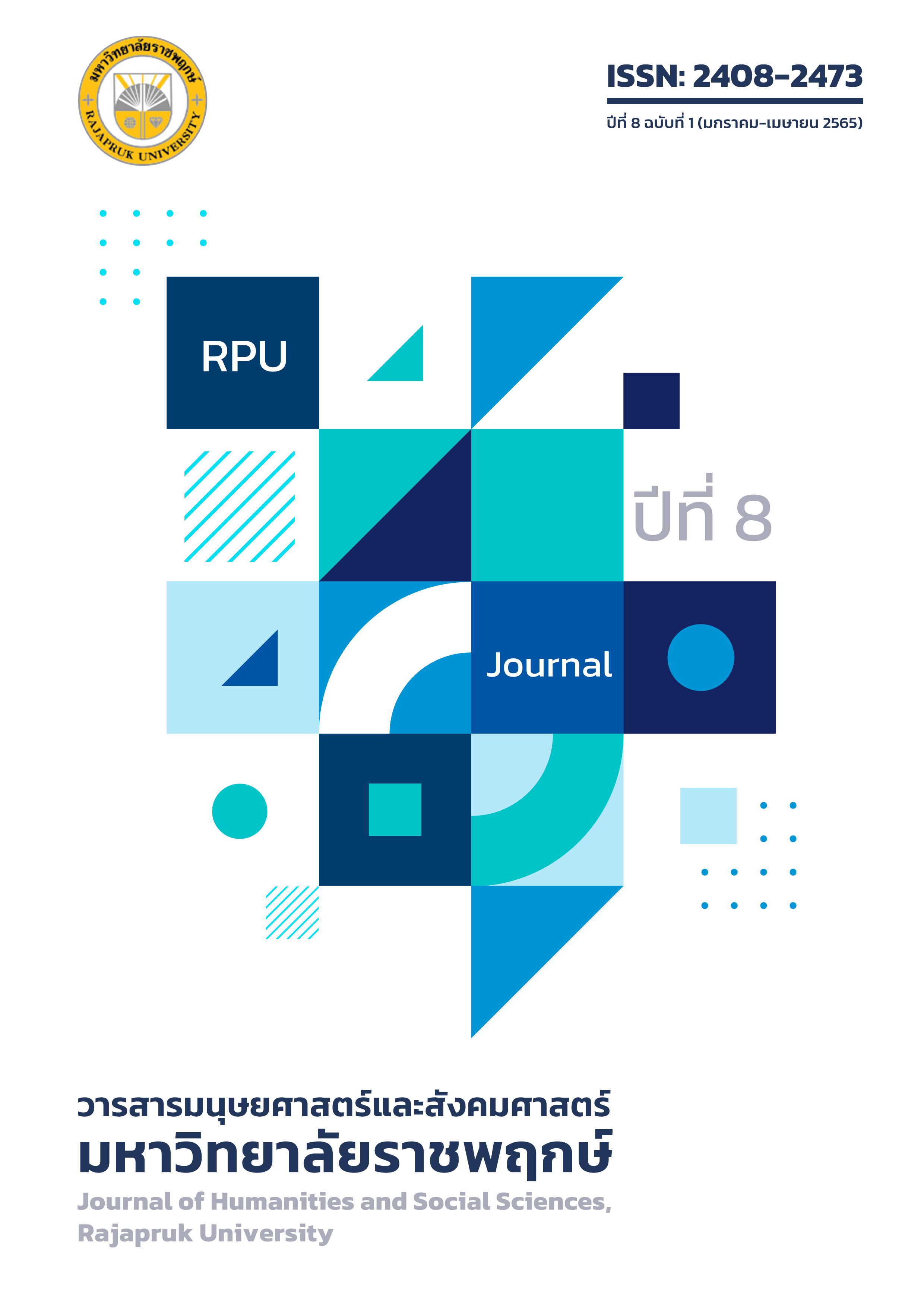Emotional Management of School Administrators Based on Teachers' Opinions under Primary Education Service Office 1 Nonthaburi
Main Article Content
Abstract
This research aimed to study and compare the school administrators' emotional management based on teachers' opinions under Primary Education Service Office 1 Nonthaburi Classified by personal factors. The sample consisted of 297 teachers under Primary Education Service Office 1 Nonthaburi. The research instrument was the questionnaire. Data collected were analyzed frequency, percentage, mean, standard deviation, t-test, One-Way ANOVA , and Least Significant Difference (LSD)
The results of the study were as follows. 1) School Administrators under the Nonthaburi Primary Educational Service Area Office 1 have emotional management. Overall, it is at a high level. When considering each aspect found that Self-motivation (mean=3.95). Followed by the intelligence to tolerate the pressure of school administrators. And Always building good relationships with others ( =3.93). In dealing with their emotions properly (mean=3.87), In self-emotional awareness (mean=3.86). And social skills (mean=3.85). 2) In the comparison of the emotional management of school administrators under Primary Education Service Office 1 Nonthaburi classified by personal factors, it was found that for teachers with different gender, job position, and school size there were no different opinions on the emotional management of the school administrators. As for teachers with different educational levels, there are different opinions on the emotional management of school administrators in understanding the feelings of others. Teachers with different ages have opinions on the emotional management of school administrators different on 4 sides. Is the aspect of self-motivation, understanding other people's feelings, and building good relationships with others. Teachers with different work experience. There are opinions on emotional management among the school administrators, as a whole, and in different areas.
Article Details
References
กรมสุขภาพจิต กระทรวงสาธารณสุข. (2546). อีคิว: ความฉลาดทางอารมณ์. กรุงเทพฯ: กระทรวงสาธารณสุข.
เจนวิทย์ จงใจ. (2558). ความฉลาดทางอารมณ์ของผู้บริหารสถานศึกษาขั้นพื้นฐานสังกัดสำนักงานเขตพื้นที่การศึกษาประถมศึกษากาญจนบุรี เขต 1. วิทยานิพนธ์ ครุศาสตรมหาบัณฑิต การบริหารการศึกษา มหาวิทยาลัยราชภัฏกาญจนบุรี.
ทรงสวัสดิ์ แสงมณี. (2553). คุณลักษณะของผู้บริหารสถานศึกษา ตามความต้องการของครูสังกัดกรุงเทพมหานครเขตบางขุนเทียน. วิทยานิพนธ์ครุศาสตรมหาบัณฑิต สาขาวิชาการ บริหารการศึกษา มหาวิทยาลัยธนบุรี.
ทศพร มะหะหมัด และ สุวิมล พันธ์โต. (2020). การใช้ความฉลาดทางอารมณ์ในการปฏิบัติงานของทรัพยากรบุคคลในองค์กร. วารสารการบริหารนิติบุคคลและนวัตกรรมท้องถิ่น, 6(2).
เทอดศักดิ์ เดชคง. (2548). ความฉลาดทางอารมณสูสติและปญหา. พิมพครั้งที่ 2. กรุงเทพฯ: มติชน.
ลัดดาวัลย์ เพชรโรจน์ และ อัจฉรา ชำนิประศาสน์ . (2562) . สถิติสำหรับการวิจัยและเทคนิคการใช้ SPSS = Statistics for research and SPSS application techniques. พิมพ์ครั้งที่ 3 ฉบับปรับปรุง. กรุงเทพฯ: เจริญดีมั่นคงการพิมพ์.
วิรัช วิรัชนิภาวรรณ (2559). 50 แนวคิด ตัวชี้วัด ตัวแบบของการบริหารจัดการและการบริหารจัดการที่ยั่งยืน. กรุงเทพฯ: ก้าวใหม่.
ศิริพร วิษณุมหิมาชัย. (2562). บริหารอารมณ์ในที่ทำงาน. กรุงเทพฯ: เพชรประกาย.
สำนักงานเขตพื้นที่การศึกษาประถมศึกษานนทบุรี เขต 1. (2560). แผนปฏิบัติการประจำปีงบประมาณ พ.ศ.2561. เอกสาร สพป.นนทบุรี เขต 1 ที่ 3/2560 กลุ่มนโยบายและแผน สพป.นนทบุรี เขต 1.
สำนักงานคณะกรรมการพัฒนาการเศรษฐกิจและสังคมแห่งชาติ. (2558). ทิศทางแผนพัฒนาเศรษฐกิจสังคมแห่งชาติ ฉบับที่ 12 (2560-2564).รายงานสรุปผลการประชุมประจำปี 2558. ณ ศูนย์แสดงการประชุมอิมแพ็ค เมืองทองธานี จังหวัดนนทบุรี.
สุดารัตน์ ธีรธรรมธาดา และ นิตนา ฐานิต ธนกร. (2558). ปัจจัยแรงจูงใจใฝ่สัมฤทธิ์ พฤติกรรมเชิงสร้างสรรค์ และความฉลาดทางอารมณ์ที่ส่งผลต่อประสิทธิภาพในการทำงานของพนักงานบริษัทเอกชนในเขตกรุงเทพมหานคร. การค้นคว้าอิสระ บัณฑิตวิทยาลัย มหาวิทยาลัยกรุงเทพ.
อมรรัตน์ วงศ์ประเทศ. (2550). การพัฒนาแบบทดสอบวัดความฉลาดทางอารมณ์ของครูประถมศึกษา สังกัดสำนักงานเขตพื้นที่การศึกษาสงขลา. มหาวิทยาลัยทักษิณ.
Costa, Ripoll, Sanchez & Carvalho. (2012). Emotional intelligence and self-efficacy: effects on psychological well-being in college students. The Spanish Journal of Psychology, 16, E50.
Dhani & Sharma. (2017). Relationship between emotional intelligence and personality: A study in Indian context. International Business Management, 11(5): 1133-1139.
Mayer, J. D., & Salovey, P. (1995). Emotional Intelligence and the Construction and Regulation of Feelings. Applied & Preventive Psychology, 4: 197-208.


